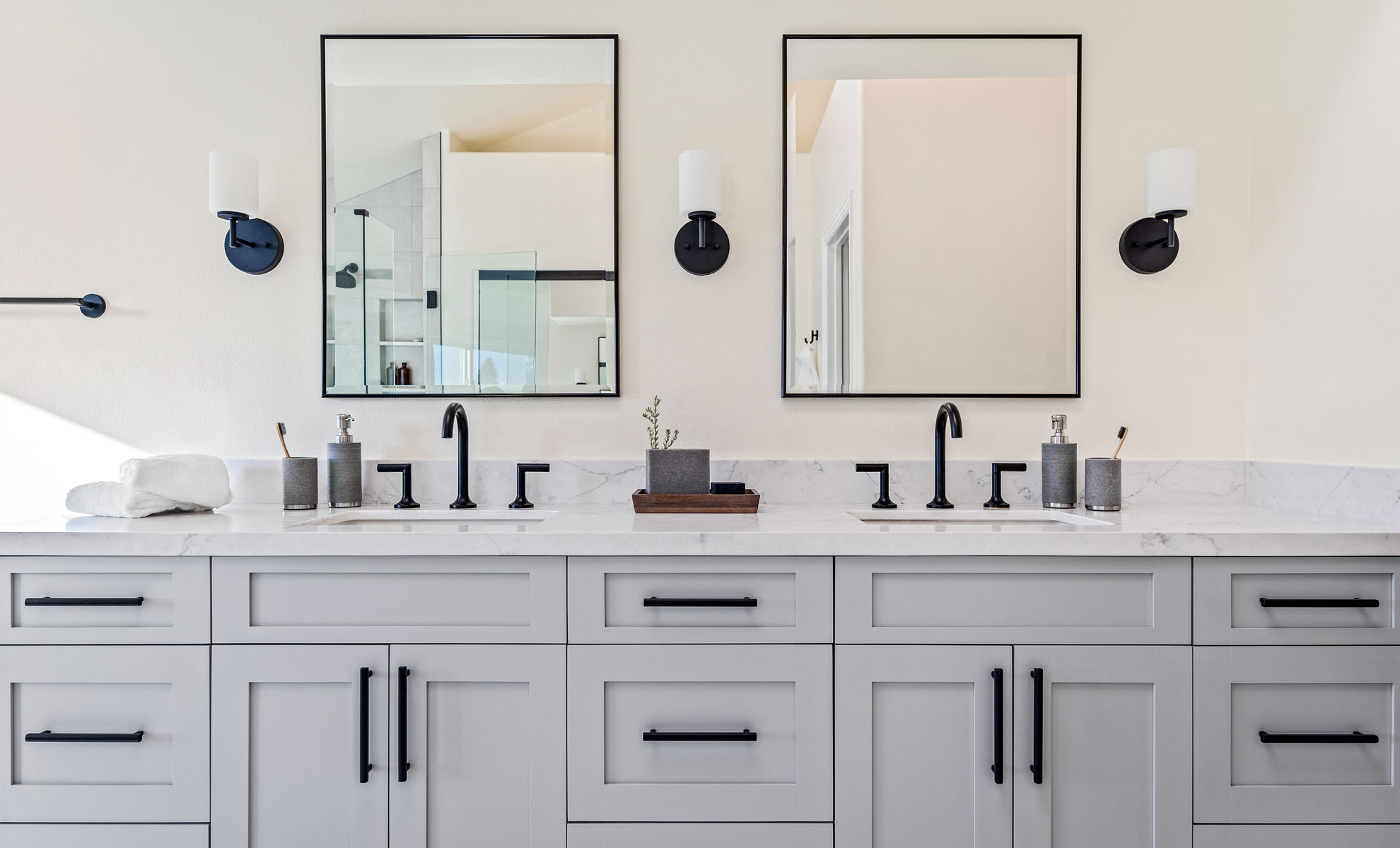Planning your next bathroom remodeling project? Whether you prioritize durability, low maintenance or functionality, quartz consistently stands out as the top choice for bathroom countertops.
From its impressive resistance to damage and stains to its versatile design options, quartz bathroom countertops are more than just a stunning surface — they’re a practical and long-lasting investment for any bathroom.
5 Key Benefits of Quartz Bathroom Countertops
From its impressive durability to its low maintenance requirements, here are five reasons why quartz is a go-to option for modern bathrooms.
1. Endless Aesthetic Appeal
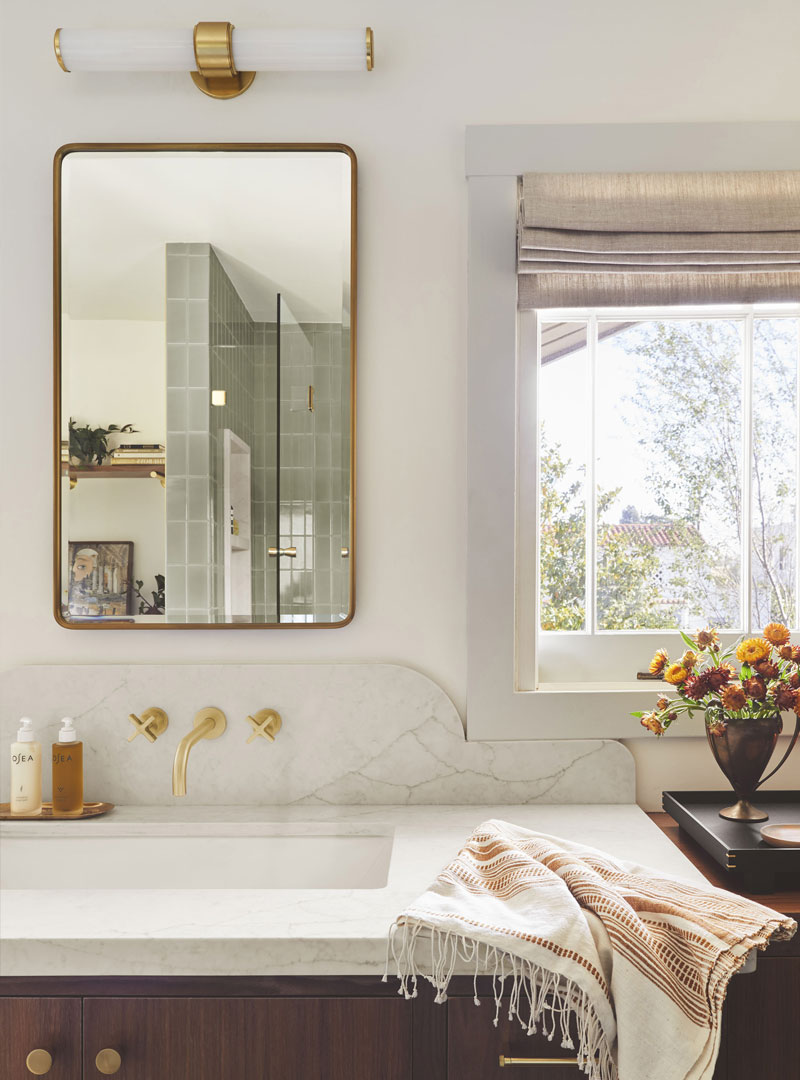
Quartz surfaces are engineered to mimic the natural beauty of stones like marble and granite, providing a luxurious look.
Available in a wide range of colors, patterns and textures, quartz can seamlessly complement any bathroom decor, whether you’re aiming for classic elegance or contemporary chic.
2. Unparalleled Design Flexibility
The design flexibility of quartz allows homeowners and designers to create custom looks that are both stylish and functional.
From the sleek, uniform appearance of a solid color to the intricate veining patterns that resemble natural stone, quartz offers wide-ranging options to suit diverse tastes and design themes.
3. Non-Porous Surfaces
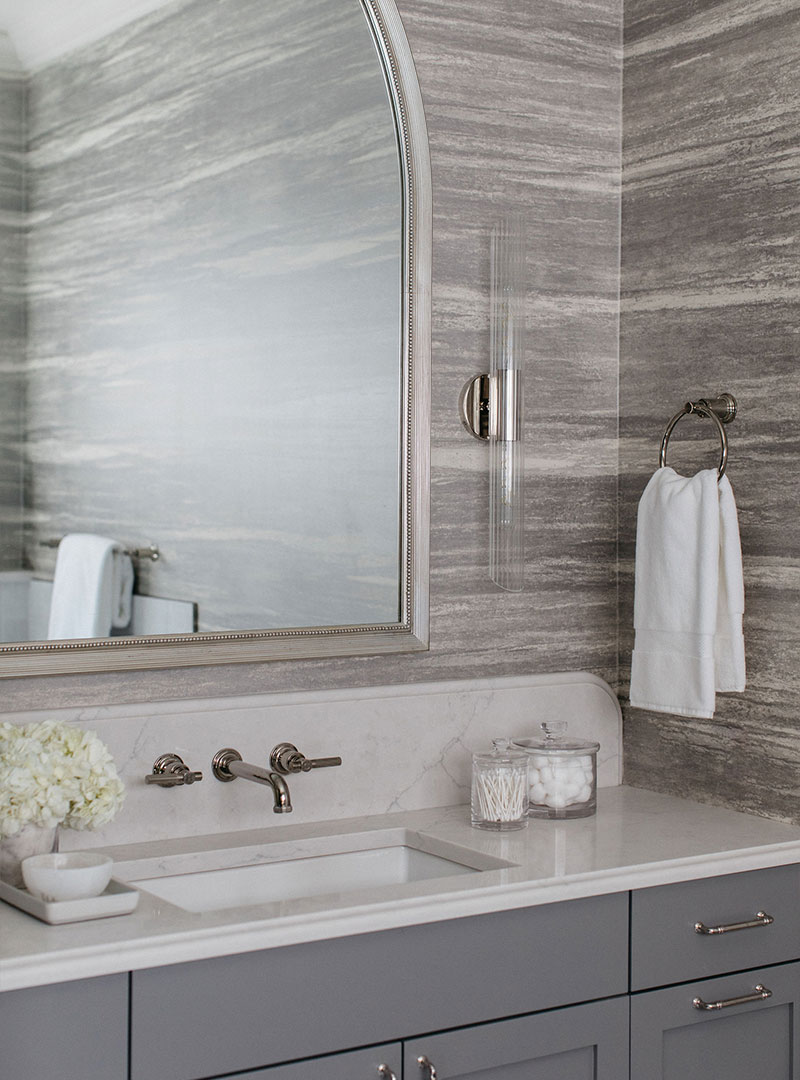
In addition to its striking appearance, quartz bathroom countertops excel in maintenance and care, making them an ideal choice for busy households.
Unlike natural stones that require regular sealing to prevent staining and damage, quartz is non-porous and does not need sealing.
This built-in resistance to stains and bacteria means that quartz countertops are highly hygienic and easy to clean, requiring only a simple wipe with a mild soap and water solution.
4. Resistant to Daily Wear and Tear
Quartz is also a highly durable material, which contributes to its low maintenance. Resistant to scratches, chips and cracks, quartz countertops stand up well to the rigors of daily use, including exposure to water and household cleaners.
This resilience ensures a long-lasting surface and keeps your bathroom looking pristine with minimal upkeep. For homeowners and designers, the convenience and durability of quartz make it a smart choice for any bathroom setting.
5. Eco-Friendly Design

Quartz is one of Earth’s most abundant minerals, primarily composed of silica. Its natural availability poses minimal risk of depletion.
Quartz surfaces are designed for durability, reducing replacements and environmental impact. Unlike natural stone, quartz’s non-porous nature eliminates the need for chemical sealing, decreasing harmful chemical use and maintenance resources. In addition, its resistance to stains enhances its lifespan, helping to conserve raw materials.
How Quartz Stacks Up Against Other Popular Surfaces
When choosing bathroom countertops, homeowners and designers have various materials to choose from, including quartz, marble, natural stone, soapstone and quartzite. Despite this range of options, quartz is still one of the most popular countertop choices.
Quartz vs. Marble
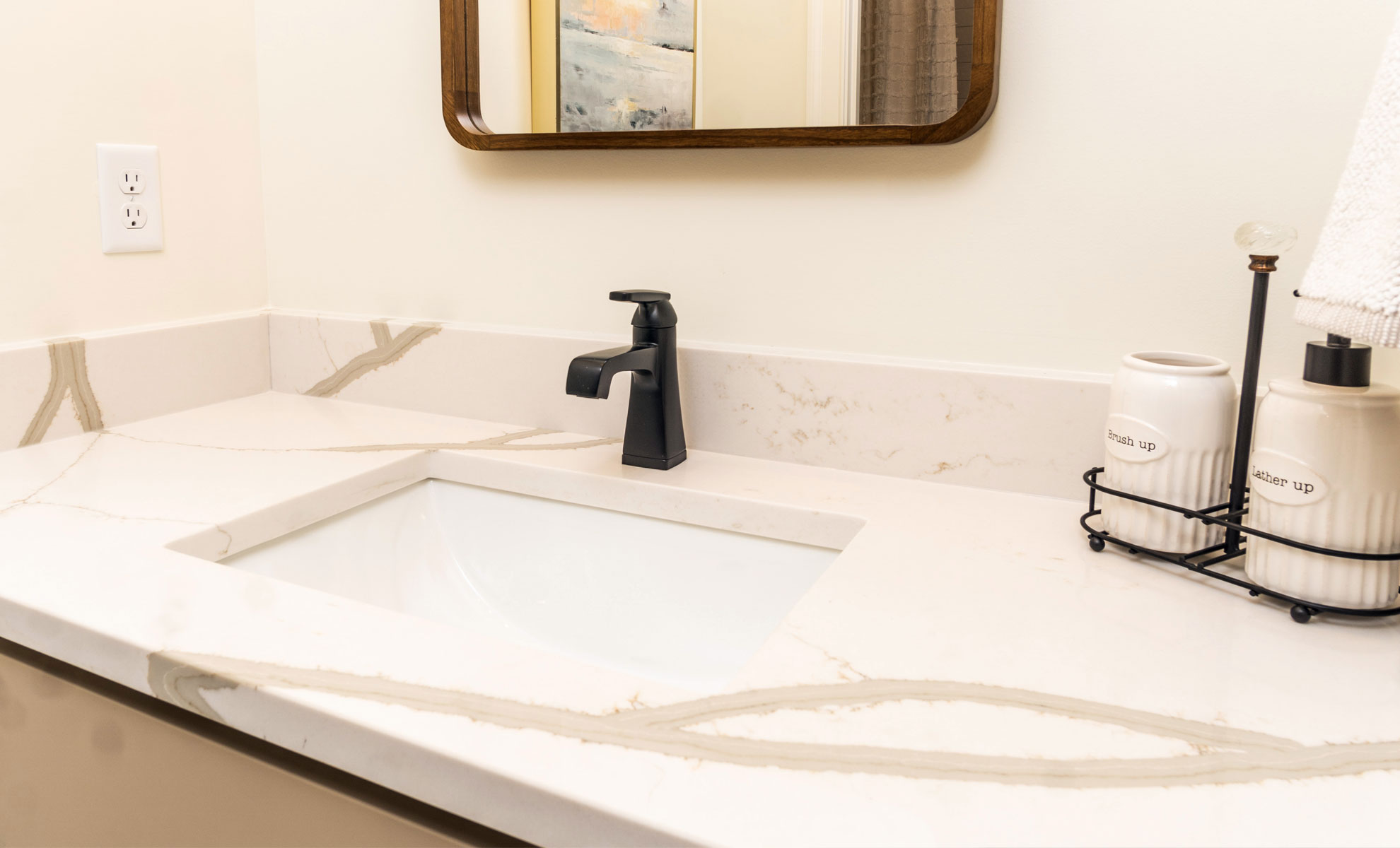
While marble is known for its timeless beauty and classic elegance, marble bathroom countertops are more porous and prone to daily wear and tear.
Quartz, being non-porous, is easier to maintain and more resistant to stains and damage, making it a practical choice for high-traffic bathrooms in busy households.
Quartz vs. Natural Stone
Natural stone countertops, such as granite and limestone, provide unique, organic patterns that quartz can replicate but not entirely match.
However, natural stone countertops often require regular sealing to prevent staining and damage while quartz does not need sealing. Quartz also offers a wider range of colors and patterns, providing greater design flexibility while ensuring lower maintenance.
Quartz vs. Soapstone
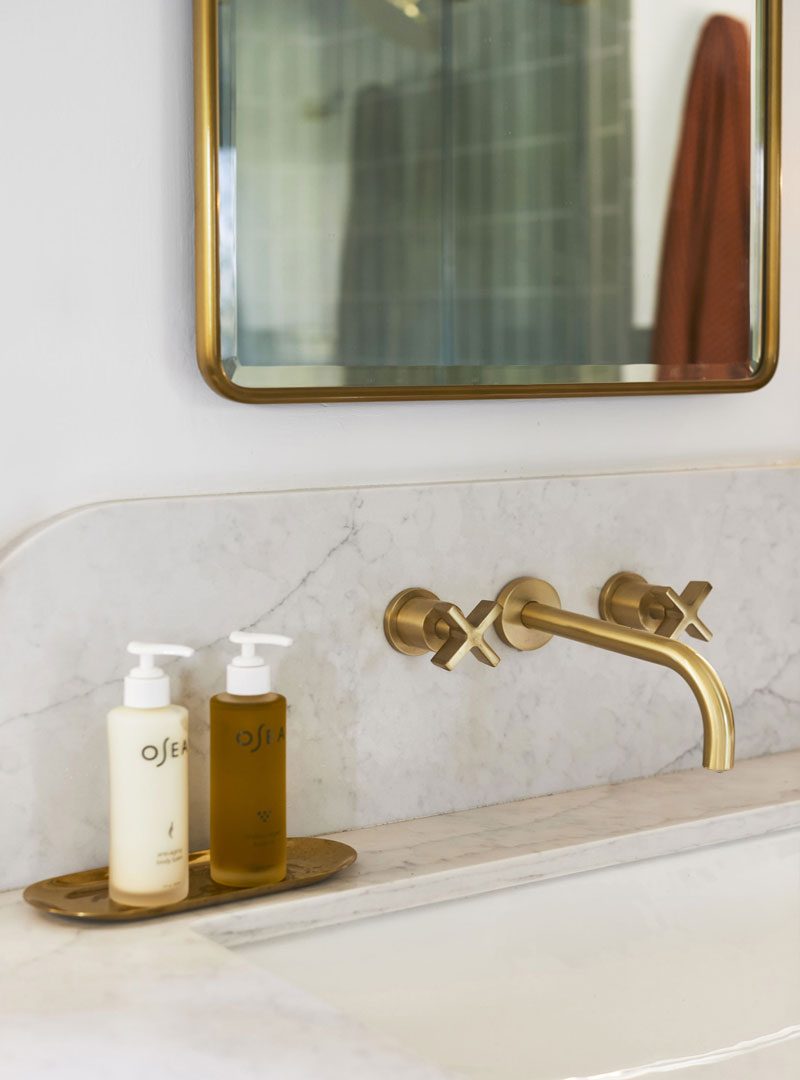
Soapstone is a soft, natural stone that develops a rich patina over time but can scratch and dent more easily than quartz.
Quartz, on the other hand, is highly durable and resistant to scratches and stains, making it a more practical choice for busy bathrooms. Although soapstone provides a unique, rustic look, quartz offers a broader range of designs and requires less upkeep.
Quartz vs. Quartzite
Although their names are similar, quartz and quartzite are distinct materials. Quartzite is a natural stone known for its strength and durability, often featuring a more dramatic veining pattern than quartz.
However, quartz countertops, which are engineered from a blend of natural quartz and resins, offer a more uniform appearance and easier maintenance because they’re non-porous and do not require sealing.
Finding the Right Quartz Countertop for Your Bathroom Needs
When selecting a quartz countertop for your bathroom, it’s important to consider multiple factors to make the best choice for your space.
From color and pattern to durability and maintenance needs, understanding these essential elements will help you find a countertop that meets both your aesthetic preferences and practical requirements.
Bathroom Size and Layout

The size and layout of your bathroom play a crucial role in determining the type and size of quartz countertop that’ll work best. For smaller bathrooms, you may need to opt for a compact countertop that maximizes space without overwhelming the room.
In these cases, it’s best to go with a quartz countertop that is a solid light color without too much veining or design. This will allow your countertop to appear larger than it is, despite its compact size.
Meanwhile, larger bathrooms offer more flexibility, allowing for wider countertop options, bolder designs and additional features like double sinks. The layout also affects how the countertop integrates with other elements, such as vanities and storage solutions, ensuring a cohesive and functional design.
Functional Requirements
It’s also essential to consider your functional needs to ensure your countertop meets your practical requirements. This includes evaluating factors like durability, ease of maintenance and resistance to stains and moisture.
For high-traffic bathrooms or families with young children, a countertop that is highly resistant to damage and easy to clean will be beneficial. Additionally, consider any special features you may need, such as extra counter space or integrated sinks, to optimize your space’s functionality.
Design Preferences
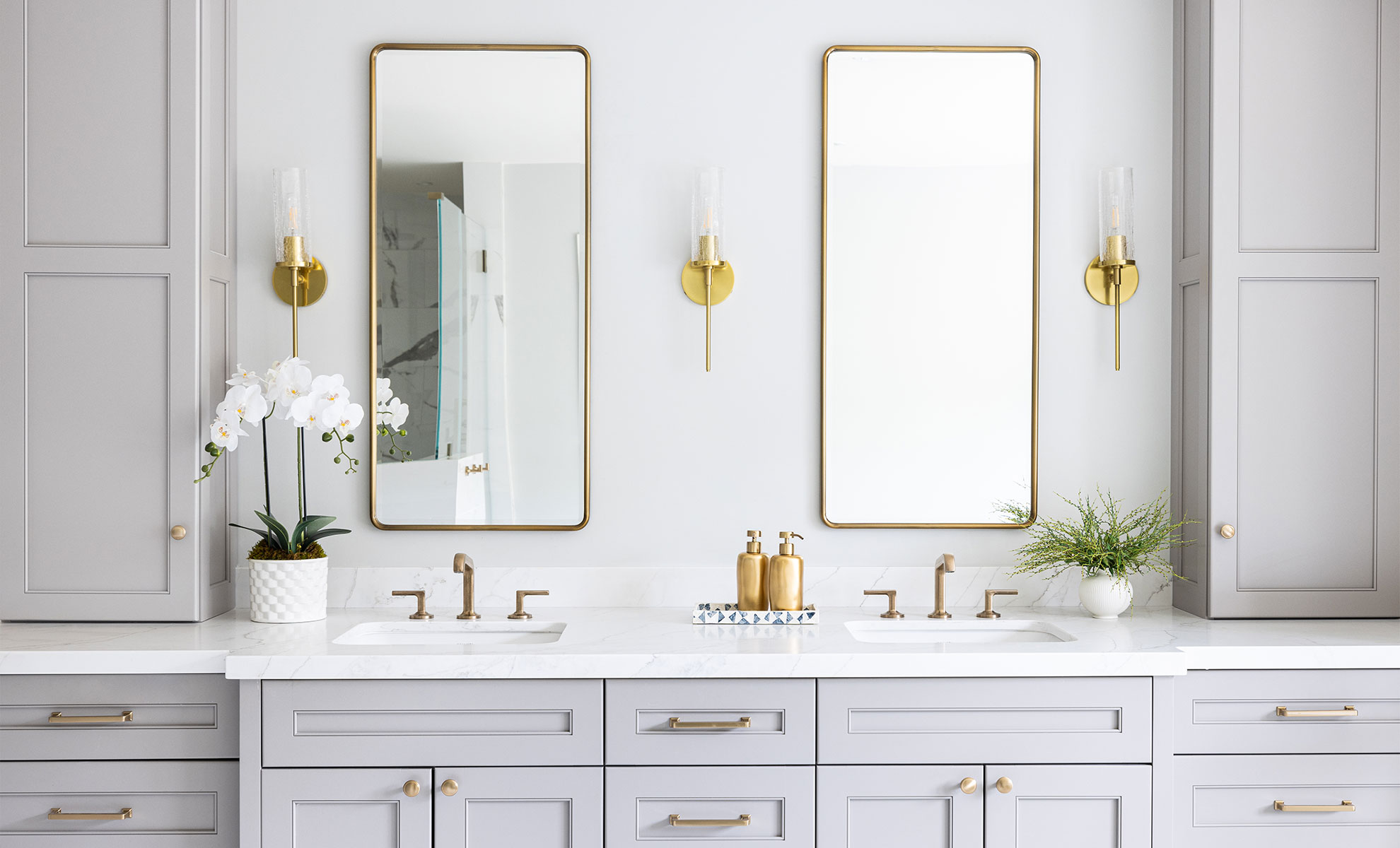
Your countertop design should reflect your personal style and complement the bathroom’s overall aesthetic.
Whether you prefer a sleek, modern look with minimalistic patterns or a more traditional appearance with intricate veining, quartz offers a wide range of colors and designs.
Consider how the countertop’s style will coordinate with other design elements, such as the cabinetry, flooring and wall colors, to create a harmonious space.
Discover Your Ideal Quartz Countertop
No matter what style or design you choose, quartz bathroom countertops offer a durable and stylish solution that meets a wide range of needs.
With its unique blend of aesthetic appeal, low maintenance and exceptional durability, quartz can elevate any bathroom design while providing long-lasting performance.
Ready to discover the perfect quartz options for your project? At Vadara Quartz, we’re dedicated to changing the look and feel of your space with beautiful, functional countertops.
Explore our designs to transform your bathroom with stunning, high-quality countertops.

